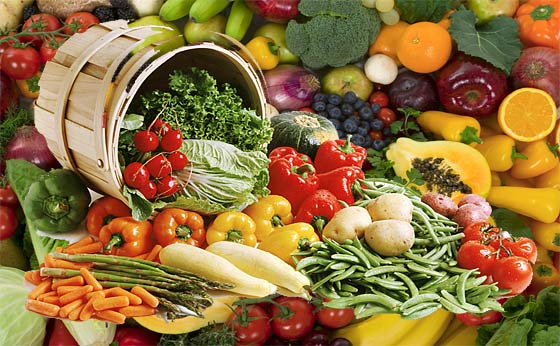Vitamin Supplements Guide List
Preppers will store up a supply of food, but have they considered the nutritional balance of the foods they’ve stored versus what the body needs?
Vitamins are necessary for our general nutrition and good health. Although they do not directly contribute to energy or body-building materials, they are important to form complex chemical compounds that are necessary to convert food to energy and to build tissue.
Note: A prolonged lack of vitamins may result in serious health problems.
The following vitamin supplement guide (list) details some of the specific information corresponding to the USRDA daily allowance for adults.
The list includes the vitamin function in the body and some of the natural food sources for the vitamin itself.
Note: Consult with your doctor regarding any vitamin supplement or intake.
Beta carotene (5,000 – 25,000 IU)
Decreases free radical damage, may decrease risk of heart attacks
Sourced from algae, orange and dark green vegetables, green leafy vegetables, peach, alfalfa sprouts, sweet potato, papaya
Folic acid – B-complex (400 – 1,200 mcg)
Helps in formation of red blood cells, enhances protein metabolism
Sourced from green leafy vegetables, broccoli, asparagus, okra, cauliflower, cantaloupe, nuts, legumes, Brussels sprouts, whole-grain cereals, oranges, carrots
Vitamin A (10,000 – 50,000 IU)
Antioxidant, aids in growth and repair of body tissues, necessary for night vision
Sourced from eggs, colored fruits and vegetables, milk and dairy products
Vitamin B1 – thiamin (50 – 300 mg)
Maintains healthy skin, mouth, eyes, hair, helps stabilize appetite, essential for normal function of heart, nervous system, digestion, growth, learning capacity
Sourced from pork, nuts, whole wheat, wheat germ, poultry, fish, brown rice, egg yolks, legumes, whole grains, blackstrap molasses
Vitamin B2 – riboflavin (50 – 300 mg)
Prevents inflammations, produces antibody and red blood cells, essential for healthy eyes, hair, skin, nails
Sourced from cheese, milk, egg yolks, peanuts, nuts, whole grains, blackstrap molasses
Vitamin B3 – niacin (50 – 500 mg)
Essential for digestion, dilates blood vessels and helps blood circulation, reduces cholesterol in blood
Sourced from lean meats, poultry, fish, peanuts, wheat germ
Vitamin B5 – pantothenic acid (25 – 500 g)
Aids in resisting stress, formation of fats, provides energy, stimulates growth
Sourced from eggs, orange juice, legumes, liver, whole grains, wheat germ, mushrooms, salmon
Vitamin B6 – pyridoxine (50 – 500 mg)
Helps digestion and weight control, enhances healthy skin, nerves and muscles, forms antioxidants
Sourced from milk, cabbage, cantaloupe, legumes, blackstrap molasses, meats, peas, wheat germ, whole grains, brown rice, prunes, leafy green vegetables
Vitamin B12 – cobalamin (50 – 500 mcg)
Essential to formation of red blood cells, promotes healthy nervous system
Sourced from pork, beef, cheese, milk, eggs, fish
Vitamin C – ascorbic acid (1,000 – 10,000 mg)
Essential in formation of skin connective tissue, strengthens body’s immune system, helps in wound healing
Sourced from tomatoes, acerola cherries, sprouted alfalfa seeds, peppers, citrus fruits, papaya, cantaloupe, broccoli, strawberries
Vitamin D – cholecalferol (400 – 600 IU)
Essential for proper function of nervous system, heart and normal clotting, aids in calcium absorption
Sourced from fat, butter, fish liver oil, oily fish (herring, sardines), egg yolks, salmon, tuna, bonemeal
Vitamin E – tocopherol (200 – 800 IU)
Powerful antioxidant and free radical scavenger, essential for cell respiration
Sourced from margarine, cold pressed oil, whole wheat and wheat germ, sweet potatoes, molasses, nuts, dark green vegetables, eggs, oatmeal, liver
Vitamin F – lineolic acid ( n/a )
Destroys cholesterol, enhances normal glandular activity, makes calcium available to body cells
Sourced from butter, wheat germ, vegetable oils, sunflower seed
Vitamin K – phylloquinone (80 mcg)
Produces blood clotting factor, helps prevent osteoporosis, not a true vitamin – developed in intestines
Sourced from spinach, green cabbage, tomatoes, liver, lean meats, egg yolk, whole wheat, strawberries
Vitamin P – bioflavonoids (500 – 10,000 mg)
Promotes healthy capillary walls, prevents colds and flu, enhances growth of connective tissue, helps prevent bruising
Sourced from buckwheat, black currants, cherries, grapes, fruits
Consider stocking up on Daily Multi Vitamins to ensure a balance of nutritional supplements, especially during periods when you know you are not eating a balanced diet.
A daily multivitamin is a good idea regardless…
Do your own due-diligence when investigating the attributes of vitamins or supplements.
This list is not to be considered medical advice.
Centrum Silver Multivitamin for Men over 50
Centrum Multivitamin for Men under 50
Centrum Silver for Women over 50
Centrum Multivitamin for Women under 50

